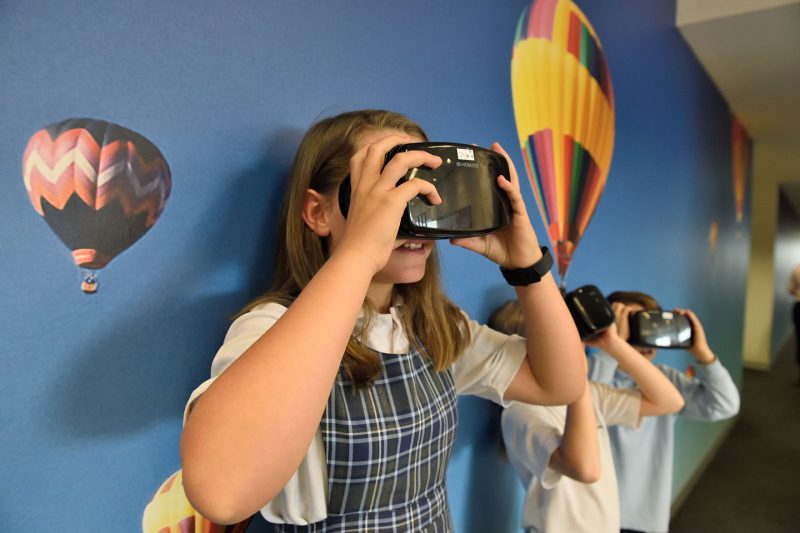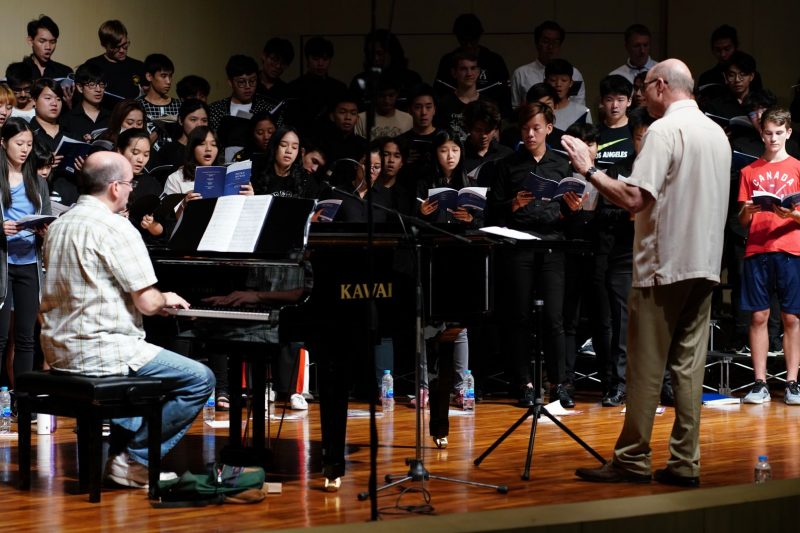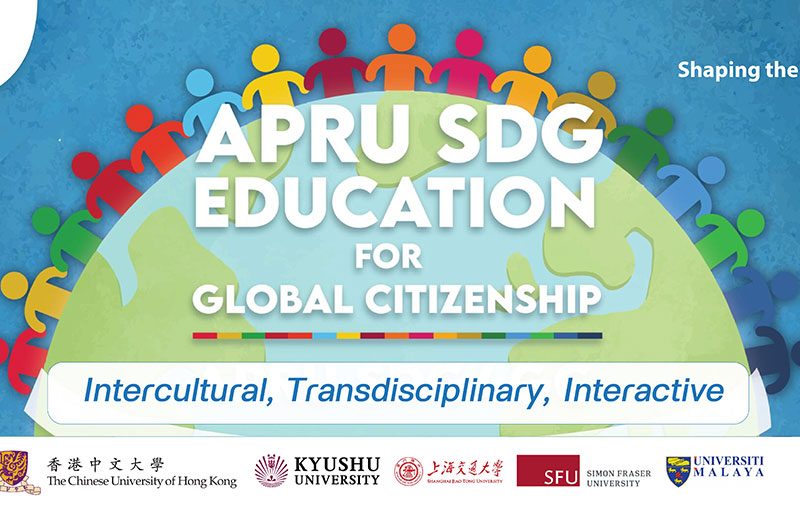Emergency Room – Virtual Interprofessional Education (ER-VIPE)
Photo by julien Tromeur on Unsplash
“The COVID-19 pandemic posed challenges as junior healthcare professionals gained limited hands-on experience due to staff shortages, compressed teaching time, and increased virus transmission risks. To address this gap, our team implemented innovative educational solutions to prepare professionals for emergency department (ED) roles in three key initiatives:
- “Emergency Love” Medical Movies: High-quality films depicting real incidents emphasize applying TeamSTEPPS and non-technical skills.
- A Two-Hour MOOC (7 modules): This online course teaches crucial non-technical abilities needed for ED work and provides certification after completing pre- and post-tests.
- 3D Virtual Simulation Team Training: Offering a virtual yet practical environment to develop skills.
The approach involves self-study, simulation-based learning, and debriefing. It has significantly improved knowledge, attitudes, and behaviors, as reflected in TeamSTEPPS Performance scores. These innovations efficiently prepare future professionals and have expanded to other Thai and neighboring countries, aligning with the WHO’s 2030 goal of zero patient harm.”
During the COVID-19 pandemic, teaching and learning in the emergency department (ED) faced significant challenges. Junior healthcare professionals encountered limited hands-on experience due to staff shortages, reduced teaching time, and an increased risk of COVID-19 transmission. However, they were still required to join rural ED hospital frontline teams upon graduation. To uphold the core values of the Faculty of Medicine, Chulalongkorn University and Srisavarindhira Thai Red Cross Institute of Nursing in student preparation, ensuring they acquire essential technical and non-technical skills for ED work, including teamwork, communication, stress management, clinical reasoning, situational awareness, ethical decision-making, and compassionate patient care while prioritizing personal safety, the integration of interprofessional education became essential.
To address these challenges, our team developed three innovative learning solutions:
- “Emergency Love” Medical Movies: These one-hour, high-production movies were created in collaboration with bioscience, art, and humanities faculties. They teach concrete actions to prevent medical errors and demonstrate the application of TeamSTEPPS and non-technical skills during medical practice.
- A two-hour, seven-module Massive Open Online Course (MOOC) focusing on non-technical skills, covering topics like TeamSTEPPS, Communication for Interprofessional Education (IPE), IPEC core competencies, safety, team clinical reasoning, stress management, and ethical principles for IPE.
- 3D Virtual Simulation Team Training involves three scenarios: a critical COVID pneumonia case, acute myocardial infarction, and overcrowding in the emergency room. It is available in computer-based and VR formats, enabling multiprofessional learners to collaborate as avatars.
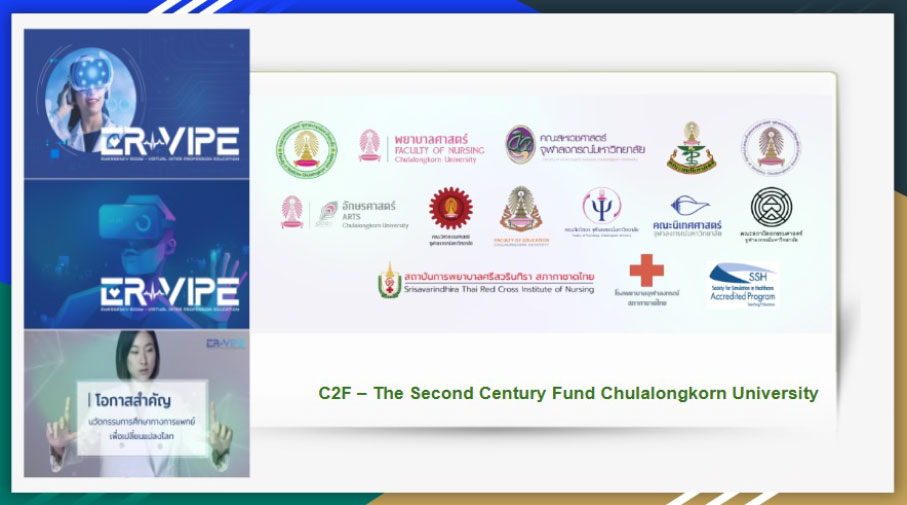
In this educational approach, students start with self-study through asynchronous online movies and a MOOC. They must pass a pre-post multiple-choice question test to receive certification. Following this, undergraduate clinical multiprofessional students, including one medical student, two nursing students, one pharmacy student, one medical technology student, and one radiology student, participate in leadership and team member roles within a virtual simulation world for 30-60 minutes. They learn from their mistakes within this online platform, guided by multiprofessional faculties trained in facilitating and debriefing using the GAS model. This innovative platform supports 100% self-study with an auto-assessment system interpreting avatar performance to assess team and individual strengths and weaknesses.
A prospective mixed-method double-blind study evaluated the impact of these innovations. The findings indicate that teams exposed to this approach and interprofessional education curriculum showed improved knowledge, attitudes, TeamSTEPPS scores, and team-based performance behavior compared to teams without this training. Additionally, preliminary research suggests that graduate students who received this training exhibit better TeamSTEPPS behaviors.
In summary, students learn through self-assessment, identifying areas for improvement and applying new concepts in real-world scenarios. This approach has been in practice for two to three years, benefiting approximately 1,200 multiprofessional students across 5 curricula from 4 faculties and training around 180 multiprofessional faculties. Moreover, MOOCs were assessed by other Thai students and staff, involving a total of 9,437 participants in one year. Additionally, ER-VIPE has been implemented in other institutes in Thailand and neighboring countries like Laos. These innovations aim to better prepare future healthcare professionals and align with the WHO’s goal of achieving zero harm to patients by 2030.
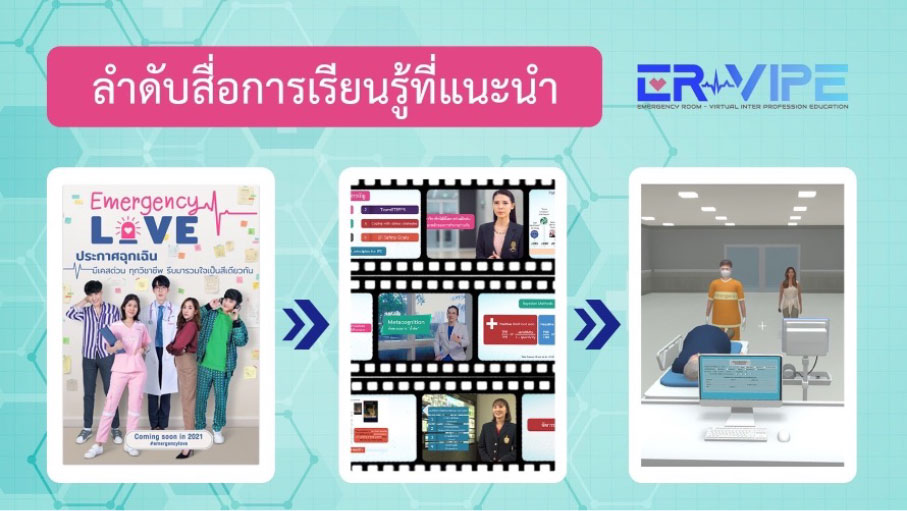
BY
- Faculty of Medicine, Chulalongkorn University
- Srisavarindhira Thai Red Cross Institute of Nursing (STIN)
- King Chulalongkorn Memorial Hospital
Related articles:
Others
Chulalongkorn to Use 5G to Unlock VR Classrooms
National Broadcasting and Telecommunication Commission (NBTC) and Chulalongkorn University officially initiated a collaborative two-year operation called 5G IT/IOT Innovation Center on campus to study and develop the use case of 5G technology to materialize VR classrooms.
Chulalongkorn University Choral Festival
Chulalongkorn University Choral Festival started in 2014, and is the first and only festival in Thailand to bring choral musicians and directors together to learn and sing in a friendly, non-competitive atmosphere, with an emphasis to promote both choral excellence and education.

